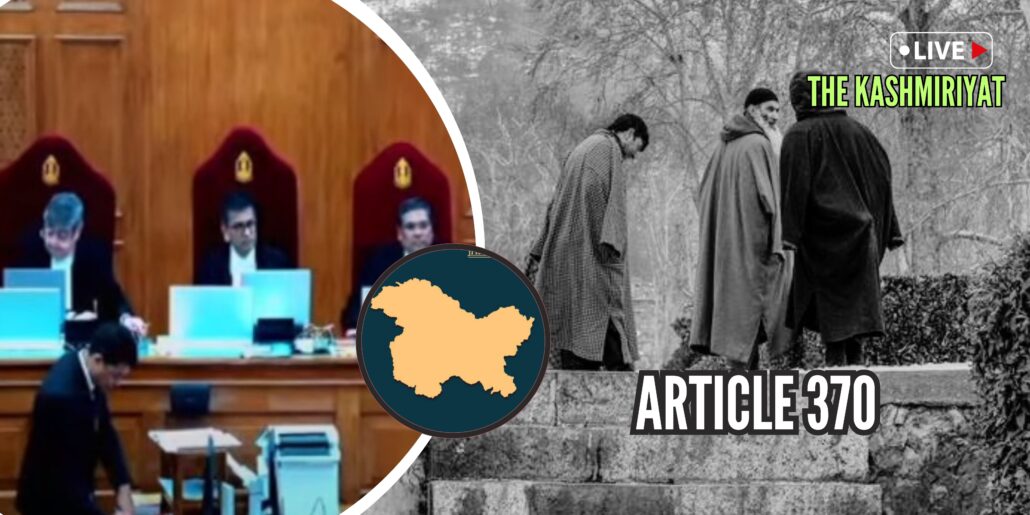
On Day ten of the hearings of the petitions challenging the abrogation of Article 370, the Supreme Court of India is set to hear the defendants (the government lawyers) on Thursday.
Earlier at least eighteen petitioners argued to the five-bench constitutional bench of the apex court led by the Chief Justice of India that the abrogation of the Article was unconstitutional.
Pertinently on 5 August 2019, the central Government abrogated the Articles 35A and 370, that provided special status of Jammu Kashmir following which the valley was put under months’ long curfew. Communication was snapped and thousands including three former chief ministers were arrested.
The regional parties including those in Jammu have been since then demanding a restoration of the special status of Jammu Kashmir, however, the Bhartiya Janta Party has maintained that it is a “dead horse” and its abrogation has brought “development” to the region.
The court began hearing the bunch of petitions on day to day basis (except miscellaneous day) on August 02. so far, 18 lawyers have argued that “no constitutional” procedure allows the abrogation of Article 370. The judges have through the course of the arguments made several remarks and raised questions as well. Chief Justice of India remarked that Jammu Kashmir completely submitted its sovereignty to India. Dr. Dhawan senior advocate Supreme court challenged this and said that Jammu Kashmir may have submitted its external sovereignty, but it kept its internal one with it.
Others who argued include Kapil Sibal, Gopal Subramaniam, Nithya Ramakrishnan, Menaka Guruswamy, Gopal Shankarnarayan. Several Kashmiri lawyers also argued in the case which include Zaffar Shah, Irfan Hafeez Lone, Zahoor Ahmed and Muzaffar Hussain Beigh.
On Wednesday, the court petitioners closed the arguments after which the CJI said that the court will hear the arguments of the defense lawyers starting today.
The Kashmiriyat has been providing you constant updates from the court.
Here are the live updates from Day 10
Solicitor General of India Advocate Tushar Mehta begins his arguments
The argument that J&K had a special status since the beginning which continued till date is factually incorrect. 286 states were in the process of framing their Constitution of this period of late 1930s. There were 62 states which had their own constitution.
SG continues: The basic argument that J&K was the only princely state with its own constitution is factually incorrect.
SG: the provision which was meant to be temporary has continued to operate for over 75 years. Later it was revealed that since Nehru was running high fever, he cannot go and thus only Mountbatten was to go.
Sr Adv Kapil Sibal: sometimes running high fever is also an act of diplomacy.
SG: Of course it was in this case. Jammu Kashmir was not the only state to have missed signing the merger agreement, there were other states too.
SG: Article 370 was temporary and it was meant to go till the situation in the region was normalized.




